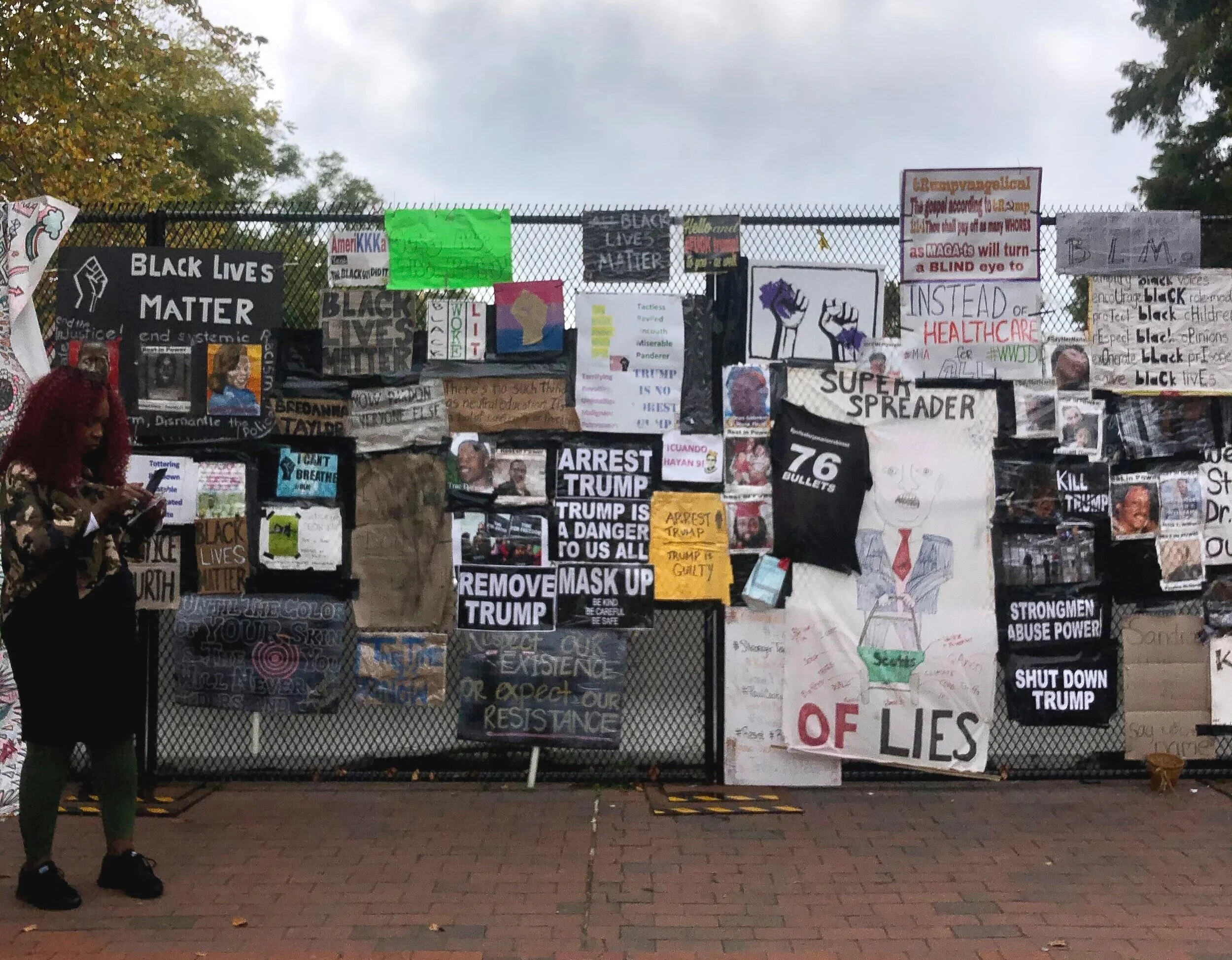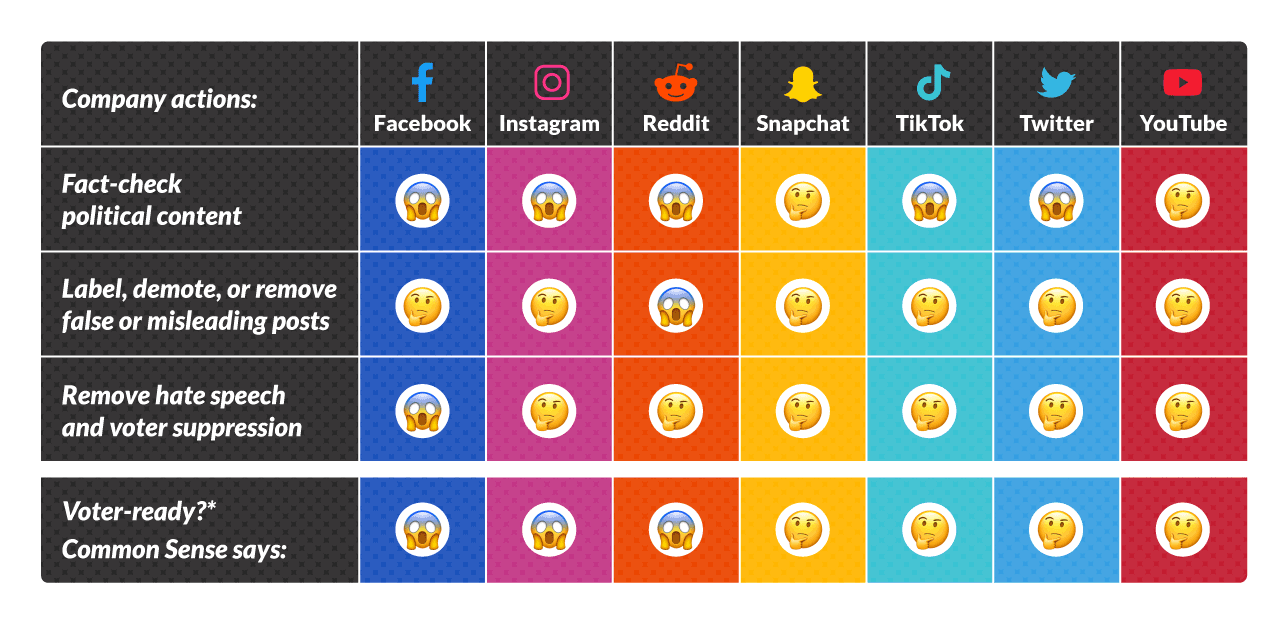How to Cope with Election Stress
Protest signs in Washington, DC.
By Marnie Kunz
As the 2020 Presidential drama — I mean election — quickly approaches, many of us are feeling on edge, to say the least. Coupled with coronavirus, it is not an easy time to be living in peace. More than two-thirds of U.S. adults (68%) say that the 2020 U.S. presidential election is a significant source of stress in their life, a large increase from the 2016 presidential election when 52% said the same, according to a new survey conducted by The Harris Poll on behalf of the American Psychological Association. But the good news is we can learn how to cope with election stress and can help each other get through it.
“It's a very interesting time and one that I can't say, in my lifetime, I've seen before, with unprecedented amounts of stress, and adversity, and traumatic situations impacting people in ways they never have before,” says Ken Yeager, PhD of Ohio State University Wexner Medical Center’s Stress, Trauma and Resilience Program. “When we think about the technology in the media today, we are receiving more input than our great grandparents received probably in a lifetime in a couple of months.”
With the stressful events in the world and so much information overload, it is important to be able to decipher true and important news and also to set limits on your social media consumption.
Know the Facts
When it comes to the 2020 Presidential Election, knowing the facts can help ease your stress and allow you to disregard the hype. Vote.org is a great starting point to find out all the rules for voting in your state and neighborhood, as well as seeing mail-in voting options and information. You can check your voter registration, sign up for voting alerts, and learn about mail-in voting on the site. Project Vote Smart is a nonpartisan resource for finding out facts on candidates and where they stand on issues. It is a great resource to learn more about who will be on your ballot.
Source: Common Sense Media
Be Smart on Social
Social media can be a big stressor during any election year but in 2020 it can be a trigger for anxiety and even panic. Keep your mind at ease by cutting back on your social media. If you notice a certain platform tends to have especially negative and polarizing posts (ahem, Facebook), then consider taking a break from that platform for the next few weeks.
You can also set a time to check your social feeds - say once every morning - and then remove the temptation to scroll and check all day by removing social apps from your phone. Checking social media on your computer is generally less accessible so will help you cut back on your consumption.
Question Sources
As any good reporter will tell you, always question your sources. Whether you’re seeing political videos on Facebook or someone speaking on TV, stop and consider the source. Is this a legitimate news organization posting or a friend of a friend or someone’s phone video? For big news, Google the events so you have a broad perspective that goes beyond people’s social media posts.
If you are on Facebook and are seeing campaign ads or want to research campaign ads for different candidates, you can look up any given political candidate via Facebook’s Ad Library to see how much their campaigns are spending. This can give you some answers as to why you are seeing so many ads from certain candidates. Also keep in mind that Facebook will use your data of likes and history to allow political ads to target you based on your demographics and likes.
Think Before Posting
When scrolling social media, it’s easy to get outraged and upset by viral videos and claims or anecdotes about what is happening in the world. In many cases, things may be worth getting upset over. But resist the urge to engage in heated debates online and do not feed the trolls. If you are going to post something political, give yourself at least a few hours to think it over before posting. Make sure you are posting an article or video from reputable sources. Consider if your post could get you fired or if it will cause an uproar. By all means you have the right to post your views and express yourself, but gather the facts before posting and be prepared to handle any backlash. Consider limiting your posts’ reach by making your account private or making your posts visible only to a select group. And if any trolls come out, simply block and report and move on. Do not dwell on trying to change people’s minds who are already decided on something and do not waste energy on them.
Unplug
If you’re really at your wit’s end with 2020 election stress, take a step back and unplug. Weekends can be a great time to escape electronic stress from the work week and unplug. Go outside, go for a run, sweat, and get those endorphins pumping. Engage with the real world and take a break from the online chaos.
Focus on What You Can Control
One of the hardest thing about the stresses in 2020 is dealing with things we can’t control - coronavirus, political leaders, economic stresses. But by focusing on what you can control, you will lower your stress and take back have power in your life. Recognize there are things you can control about the 2020 election — you can exercise your right to vote, educate yourself, and exercise your right to free speech and protest. You can also limit your exposure to election stress by cutting back on social media, reporting trolls, and making your accounts private.
Leverage Your Support Network
Create an election plan that includes your best support network. Whether you are together with some of your network or decide to watch the election virtually together, having allies and people to talk to throughout the process can be so helpful.
“Practice self-care which can take many forms, including applying a filter to limit your time online and exploring your feelings in a safe, supportive environment,” advises therapist Bridgit Dengel Gaspard, LCSW. “For example, plan a watch party in advance where friends and family agree to certain guidelines so everyone is in a safe space within this chaotic environment. Prioritize allowing yourself to process with trusted allies and also the inner selves that help you access clarity, joy, and peace of mind.”
Do you have a plan in place for self-care during the election? Get started on yours now and you’ll be relieved you did when the big day comes.
Resources: Vote.org, Project Vote Smart
Related Posts: 20 Ways to Lower Anxiety During Coronavirus, How to Make a Self-Care Plan
Marnie Kunz is a NASM-certified trainer and USATF- and RRCA-certified running coach and the creator of Runstreet Art Runs, which bring together communities through running and street art. She is a Brooklyn resident, running coach, and writer. She enjoys traveling, art, and eating messily. You can follow her running and events at @Runstreet Instagram and Runstreet Facebook.




